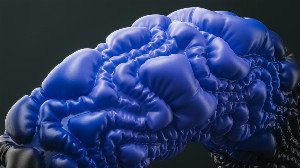Matteo Garau
Spinoza sive anti-Spinoza. Jacobi e la scientia intuitiva
Introduction
Spinoza sive anti-spinoza. Jacobi e la scientia intuitiva. This article links Jacobi's immediate knowledge to Spinoza's intuitive science, showing how Jacobi finds a non-deductive, self-grounded certainty within Spinozism.
Abstract
This article argues that the form of immediate knowledge that Jacobi opposes to Spinozism is structurally connected to Spinoza’s third kind of knowledge and his conception of the adequate idea. Jacobi thus appears to locate a model for a form of knowledge that goes beyond the intellectualist limits of deduction in Spinozism itself. This form of knowledge involves an idea that cannot be reduced to deductive reasoning, providing an immediate certainty that is grounded solely in itself. Jacobi therefore appears to be using Spinozism against itself.
Review
This article presents a fascinating and provocative re-reading of the philosophical relationship between Jacobi and Spinoza, particularly focusing on Jacobi's concept of immediate knowledge. The central thesis posits that, contrary to conventional interpretations, the form of immediate knowledge Jacobi deployed against Spinozism is in fact structurally analogous to Spinoza's third kind of knowledge and his notion of the adequate idea. This nuanced argument suggests that Jacobi, far from simply rejecting Spinoza, strategically identifies within Spinozism itself a model for a form of intuitive certainty that transcends purely deductive intellectualism, effectively employing Spinoza's own conceptual tools "against itself." The strength of this article lies in its innovative approach to a well-trodden philosophical debate. By proposing a direct structural connection between Jacobi's immediate certainty and Spinoza's *scientia intuitiva*, the author offers a compelling re-evaluation of both thinkers. This challenges simplistic dichotomies and opens up new avenues for understanding the complexities of their engagement, especially regarding the nature of intuitive knowledge and its relationship to rational deduction. The claim that an idea providing "immediate certainty grounded solely in itself" can be found within Spinozism to counter its perceived intellectualist limitations is particularly intriguing and promises to enrich our understanding of Spinoza's epistemology. If successfully demonstrated, this article promises to significantly contribute to Spinoza scholarship, Jacobi studies, and the broader history of philosophy, particularly concerning the development of intuitionist thought in the post-Kantian era. It could prompt a re-examination of how philosophical systems are critiqued and appropriated, highlighting the subtle ways thinkers engage with and transform their intellectual adversaries. The exploration of an "anti-Spinoza" that nonetheless draws on Spinozist foundations raises important questions about intellectual lineage and the hidden continuities across seemingly antithetical philosophical projects. This promises to be a highly stimulating and impactful contribution.
Full Text
You need to be logged in to view the full text and Download file of this article - Spinoza sive anti-Spinoza. Jacobi e la scientia intuitiva from Noctua .
Login to View Full Text And DownloadComments
You need to be logged in to post a comment.
Top Blogs by Rating
Unlock Your Brainpower: Master...
By Sciaria
Unraveling Heredity: Beyond th...
By Sciaria
Big Data's Unintended Conseque...
By Sciaria
Favorite Blog
The Ageless Enigma: What Biolo...
By Sciaria
The Geological Secret in Your...
By Sciaria
Life's Grand Algorithm: Is Bio...
By Sciaria





